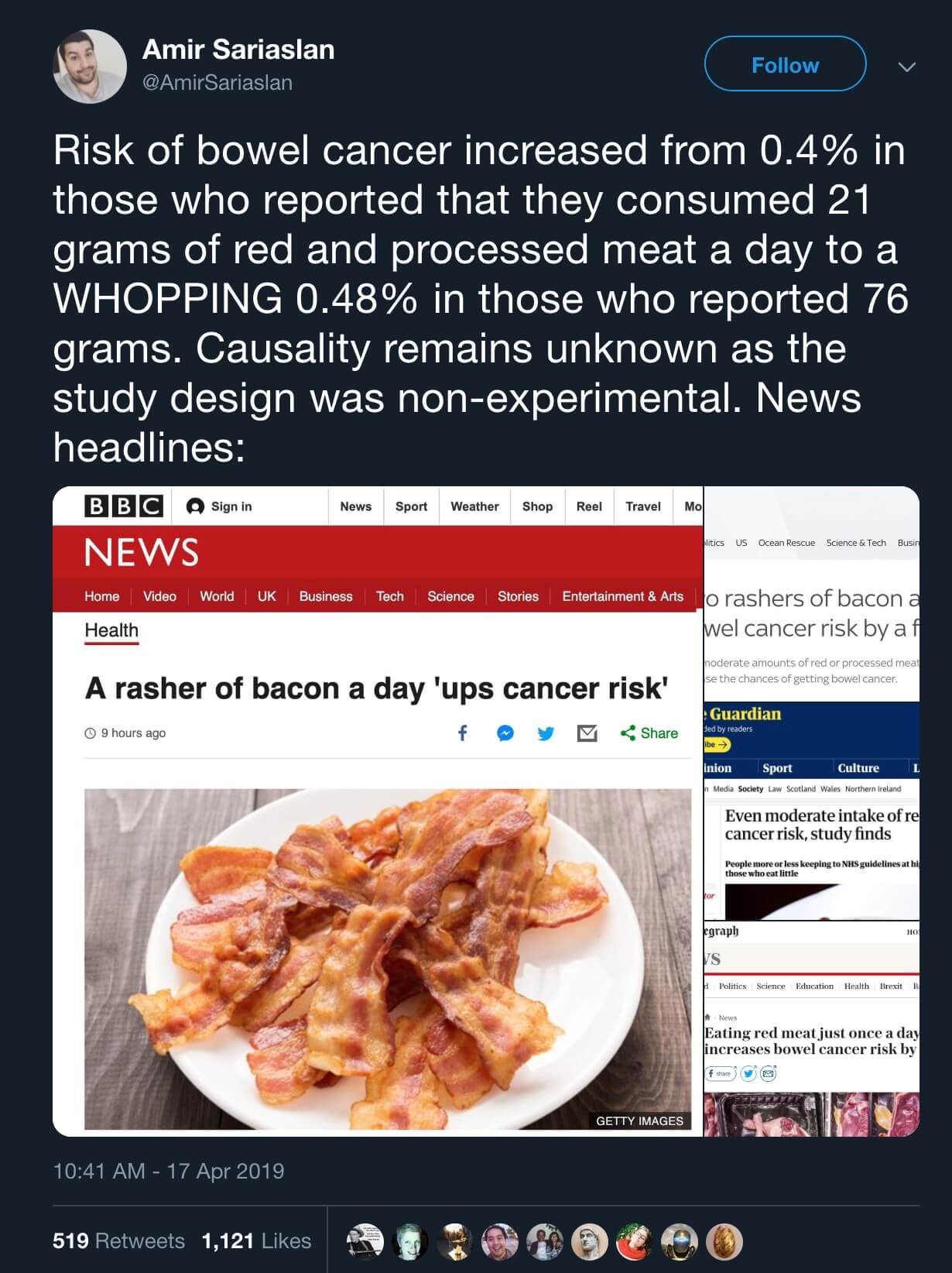A recent post on Twitter by Swedish epidemiologist Amir Sariaslan highlights how some of the world’s most visited and widely read media chose to skew their reporting about a study into bowel cancer risks.
“Risk of bowel cancer increased from 0.4% in those who reported that they consumed 21 grams of red and processed meat a day to a WHOPPING 0.48% in those who reported 76 grams. Causality remains unknown as the study design was non-experimental,” Sariaslan writes referring to headlines from British media powerhouses the BBC, The Sun, the Independent, and the Guardian, who all decided to interpret these findings as a fact that eating red meat and bacon even in moderate amounts significantly raises cancer risks.

A case of misleading, or even false reporting? Or just a rush to secure more traffic and engagement? In any case, not a case of truthful and responsible reporting – something that people are conditioned to expect from mainstream media.
But it’s not an irrelevant question in this day and age when campaigns to protect information integrity, single out fake news, and suppress misinformation – worthy goals in and of themselves – are a dime a dozen. While none of these negative phenomena are by any means new, they have been put into focus over the last few years, particularly against the backdrop of political upheaval and changes taking place in the US and Europe.
Now governments, various organizations, and media outlets themselves routinely engage in, or announce future projects designed to police content on the internet in order to weed out misinformation. And the usual suspect is most often the alternative side of the media scene.
Where the current advertised push for truthful information becomes problematic is that the very mention of “misinformation campaigns” goes hand in hand with the widely accepted narrative that they are perpetrated by the alternative media – often on the conservative side of the political divide.
Mainstream media, meanwhile, have the ability to reach the widest audience and therefore influence public opinion in direct and powerful ways. And while the ideological thug-of-war taking place is nothing new, it has gained prominence in the past several years, promoting mainstream media – who often have their own clear political bias – as not only the purveyors but also the arbiters of “true” information.
The conundrum then becomes: who will guard the guards themselves?
We recently reported Facebook will soon be further deranking alternative media sites and favoring mainstream sites with its new algorithm.













